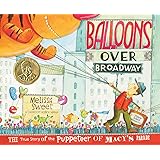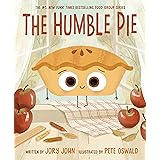“Unlocking the Hidden Voice: How Creative Writing Transforms Self-Expression into Art”
There are numerous benefits to self-expression, and the benefits are different for everyone. Some people use morning pages (three pages of handwritten stream-of-consciousness every morning) to purge the clutter from their minds, which can enhance concentration and focus, while others use storytelling to understand sociological and humanitarian issues. Here’s a look at a few common benefits of self-expression:
- Therapeutic: Through writing, we can better understand our problems, focus on fixing them, and find the solutions we need.
- Self-Development: Journaling is encouraged in many fields of self-development, from fitness to career growth. Writing allows us to articulate our goals and track our progress toward achieving them.
- Liberating: It’s liberating to give yourself a personal writing space that isn’t influenced by the possibility of someone else reading what you’ve written. There’s freedom in writing without inhibition.
- Discovery: The act of writing forces you to articulate your thoughts, which often leads to new discoveries. You might discover forgiveness through writing, or you might unearth viewpoints that you didn’t realize you held.
- Catharsis: Creativity, in general, is cathartic. There’s something thrilling about creating something. But there’s also catharsis in expressing bottled-up feelings and suppressed thoughts, and freeing the mind of its clutter.
- Relationship-building: We cannot forge a relationship of any kind without communication that includes self-expression. Each of us needs to feel understood and heard. By sharing our self-expressive writings with others, we build connections, but it’s just as important to have a healthy relationship with oneself.
- Sharing: Our self-expressions can include knowledge or experiences that we share to benefit others. Our writing could make someone else feel less alone or offer valuable information or wisdom that helps people.
- Validating: Even if we don’t publish or share our written self-expressions, putting our thoughts and feelings down in words can help us acknowledge them and feel validated. Although we might share our writing with others and get a sense of validation from their reception, we don’t need external validation; it’s more powerful if it comes from within.
- Relief: Holding in difficult thoughts and emotions is not healthy. We certainly don’t want to obsess over them and write incessantly about negativity — but it’s healthy to explore these feelings and then find a way to heal and move on. The act of writing about our challenges can be a relief, especially when dealing with private matters that we might not want to share with others.
Best Practices for Self-Expression with Creative Writing
Self-expression can be an exercise in exploring our beliefs, sharing our values, or offering our experiences. You might also want to turn your self-expressions into poems, stories, or essays that people will read. Or maybe you just want to keep a journal that nobody except you ever sees. As you pursue self-expression through creative writing, here are some best practices that you can apply:

















